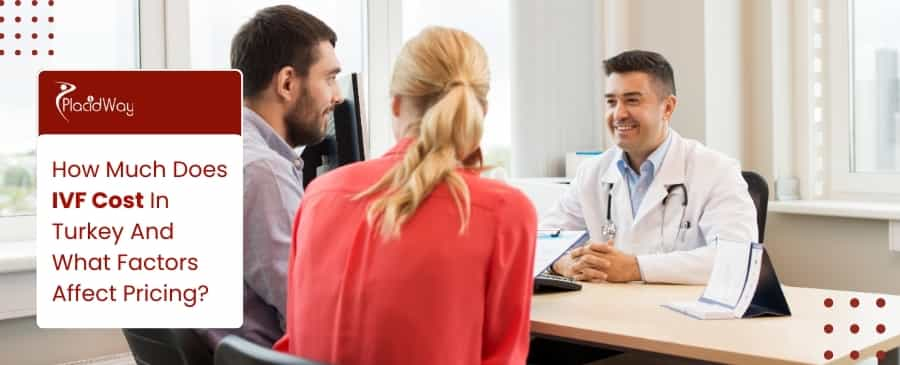Average IVF Cost in Turkey

The idea of undergoing IVF in Turkey often brings up questions about affordability, quality, and what exactly is included in the price. It's a journey filled with hope, and navigating the costs shouldn't add unnecessary stress.
The good news is that IVF cost in Turkey is notably more accessible compared to many Western countries, making it an attractive choice for international patients.
What is the average IVF cost in Turkey?
This is a broad range because there isn't a single, fixed price; clinics have different pricing structures, and individual patient needs vary significantly. This price usually covers the core aspects of the IVF process, such as ovarian stimulation, egg retrieval, fertilization, and embryo transfer.
It's important to remember that this average cost is for one complete cycle. Some patients may require multiple cycles, which would increase the overall expenditure. Therefore, when researching clinics for your IVF treatment in Turkey, always ask for a detailed breakdown of what is included in their quoted price per cycle to avoid any surprises.
How do IVF success rates in Turkey compare globally?
For women under the age of 35, many top-tier clinics in Turkey report live birth success rates per cycle ranging from 40% to 60%. These rates naturally decrease with age, reflecting global trends in fertility treatment. Clinics often invest heavily in modern embryology labs, cutting-edge diagnostic tools, and continuous training for their staff, all contributing to these favorable outcomes.
What is typically included in an IVF package in Turkey?
Understanding what’s bundled into an IVF package in Turkey is essential for budgeting and comparing clinics. While packages can vary, most standard offerings for fertility treatment in Turkey generally cover the core medical procedures required for an IVF cycle.
How does IVF cost in Turkey compare to the UK or USA?
The cost comparison for IVF treatment between Turkey and Western countries like the UK or USA highlights one of Turkey's strongest appeals for medical tourists. The differences are substantial, making Turkey a compelling option for those seeking high-quality care at a more affordable price point.
| Country | Average IVF Cost (per cycle, estimated) | Notes on Inclusions/Exclusions |
|---|---|---|
| Turkey | $2,500 - $6,000 | Often includes core procedures (retrieval, fertilization, transfer). Medications, PGT, and freezing are usually extra. |
| United Kingdom | £5,000 - £10,000 ($6,000 - $12,000) | Prices vary significantly by clinic. Medications often add £1,000-£3,000 ($1,200-$3,600) on top. |
| United States | $12,000 - $25,000 | Highly variable by state and clinic. Medications typically add $3,000-$8,000. Insurance coverage is rare. |
If you're considering medical tourism for your healthcare needs, including fertility treatments, explore PlacidWay for comprehensive solutions and support.




.png)
.png)
.png)



Share this listing